Maremmas train Maremmas - a story
Younger boy Romeo trained the older two girls not to attack chicks. It's pretty cool.
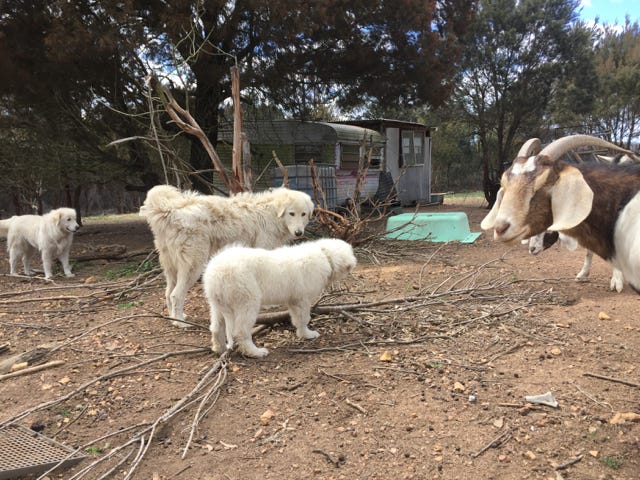
It’s a common statement that the best trainer for a Maremma is another Maremma.
Generally, this takes the form of an older dog training up the younger puppy.
It’s not perfect, of course; you still have to monitor the pup for interactions with stock, as some older Maremmas may not correct overly-bouncy play with stock.
But broadly speaking, Maremma pups are hard-wired to watch and learn from the adults around them.
In the general scheme of things, the older dogs don’t learn from pups - and you honestly don’t want them to. Pups come with all sorts of bad habits that you don’t want adults picking up.
This is a story of one of those exceptions. It was originally written and shared to Facebook in July 2019.
Short version
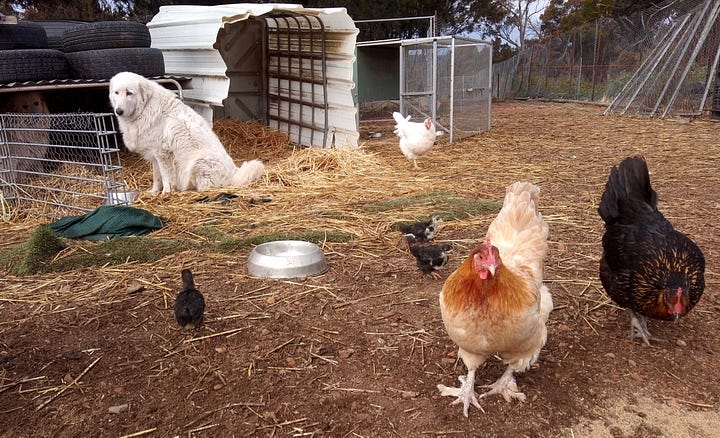
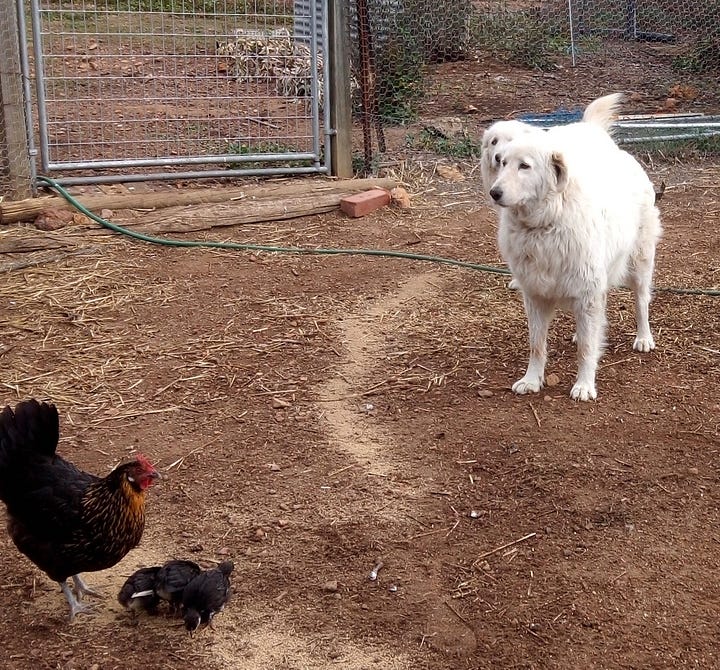
See those photos? They look so innocuous. I took it in 2019. Hens, chicks, Maremmas.
I couldn't have taken it in 2016. The girls - Bella and Pieta - would have killed those chicks.
What's changed? Romeo.
Romeo has taught the older girls that the sound of a cheeping chick is not something to get strung out about, not to have fights about, not to kill the chick about.
In return, they've delegated everything to do with chicks to him. They trust him to the point that unless he says something about the chicks, they won't pay any attention to them at all.
I am so proud of them all, because I didn't consciously teach the girls that. They taught themselves, based on the training I gave - and continue to give - to Romeo.
That's pretty damn cool.
Backstory
If I'd let a hen and chicks into the main flock, I'd have dead chicks. Not because of chicks being in the main flock - I've got more than enough space for that to not be a problem. I've been raising "wild-raised" chicks for years without issue.
Because of my original two Maremmas.
See, Bella and Pieta got upset by the sound of distressed chicks. And let's face it, chicks get distressed at the drop of a hat. They get lost, they get stuck, they go for adventures and can't find mum and scream blue bloody murder.
So one or the other Maremma would find the distressed chick and try to stop the cheeping. Which they did. Terminally.
Often, there'd be a fight - one of those vicious hideous between-us-girls no-holds-barred ones - because both dogs were trying to guard/protect/stop cheeping but both were getting worked up by the noise. So I'd have dead chicks AND bleeding Maremmas.
In the end, I basically removed broodies and chicks from the main flock and raised them separately.
And then came 12-week-old Romeo.
I raised him quite deliberately with chicks. His puppy yard was right next to a pen of (safely-contained) incubated chicks; from the day he came here, they were his background sound and movement, even more so than us humans.
As he and they got older, I took him to visit them in their pens and yards, and rewarded him for calm, gentle behaviour.
I took him to visit the broodies on their nests, and let him be pecked on the nose by them. (At which he is always very indignant and gives me the most astonished hurt look. At which I then laugh and give him a massive cuddle. So he tolerates it).
When their chicks hatched, he and I sat down and watched them, and I rewarded him - by just sitting there and giving him attention. Romeo will put up with an awful lot for a cuddle.
We've had a couple of accidents with adult chickens, as is normal for growing Maremmas, but Romeo has never touched the down on a chick's head. Ever. I'd know - because I count them.
And when Romeo went into the paddock with the girls, he taught them how to respond to chicks - basically, to ignore them.
Since he's been there, our deaths in our younger birds have dropped to 0. You get the odd death in wild-raised chicks - it happens. Cocci, aerial predation, just getting too lost or stuck and getting too exposed, or occasionally slipping in water sources - you learn to start with about 10 chicks and end up with 7.
But this last 12 months, we've had five broodies raise chicks inside the paddock. And every broody has raised all their hatched chicks to adulthood. Every last one.
Bella and Pieta ignore them. They delegate everything to do with chicks to Romeo - if he doesn't do anything about them, then neither do they. They trust him implicitly. It's been astonishing, and wonderful, to watch.
I'm proud and amazed, because this is clear transfer of knowledge between Maremmas. I had no idea how to teach them. I'd tried, but Bella was too high-strung to relax around chicks - there simply wasn't a calm behaviour to reward her for. And Pieta just mimicked what Bella was doing.
Romeo was calm, and there all the time, and they just delegated all the difficult stuff to him.
Conclusion
Maremmas can absolutely learn new good behaviours, absolutely unlearn old bad ones, and that allowing Maremmas to teach eachother absolutely bloody WORKS.
But it takes time and initial constant work. I had to train Romeo first, and I continue to train him. I'm always careful about the first introduction to new chicks (or guineafowl keets, or ducklings, or goslings), always modelling the good, calm behaviour I want from him. (This does include gently pushing chicks aside to get to their feed, which appears to be like crack to Maremmas).
I can verbally call him away if he gets over-excited, or slip a leash on him and pull him out of the pen if anything happens.
It's not magic ... it just feels a bit like it.
Got a comment or a similar story? Share below.




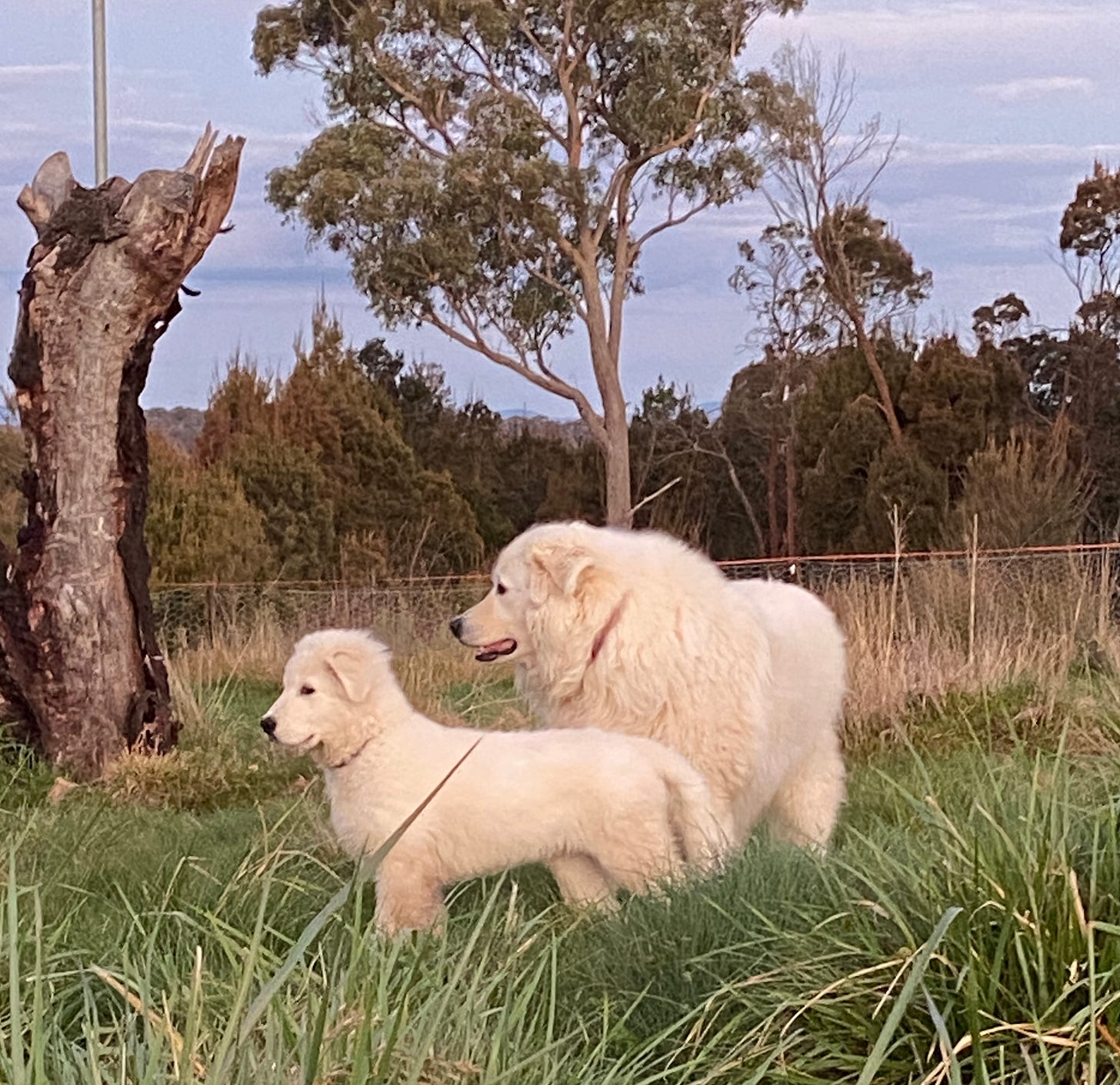
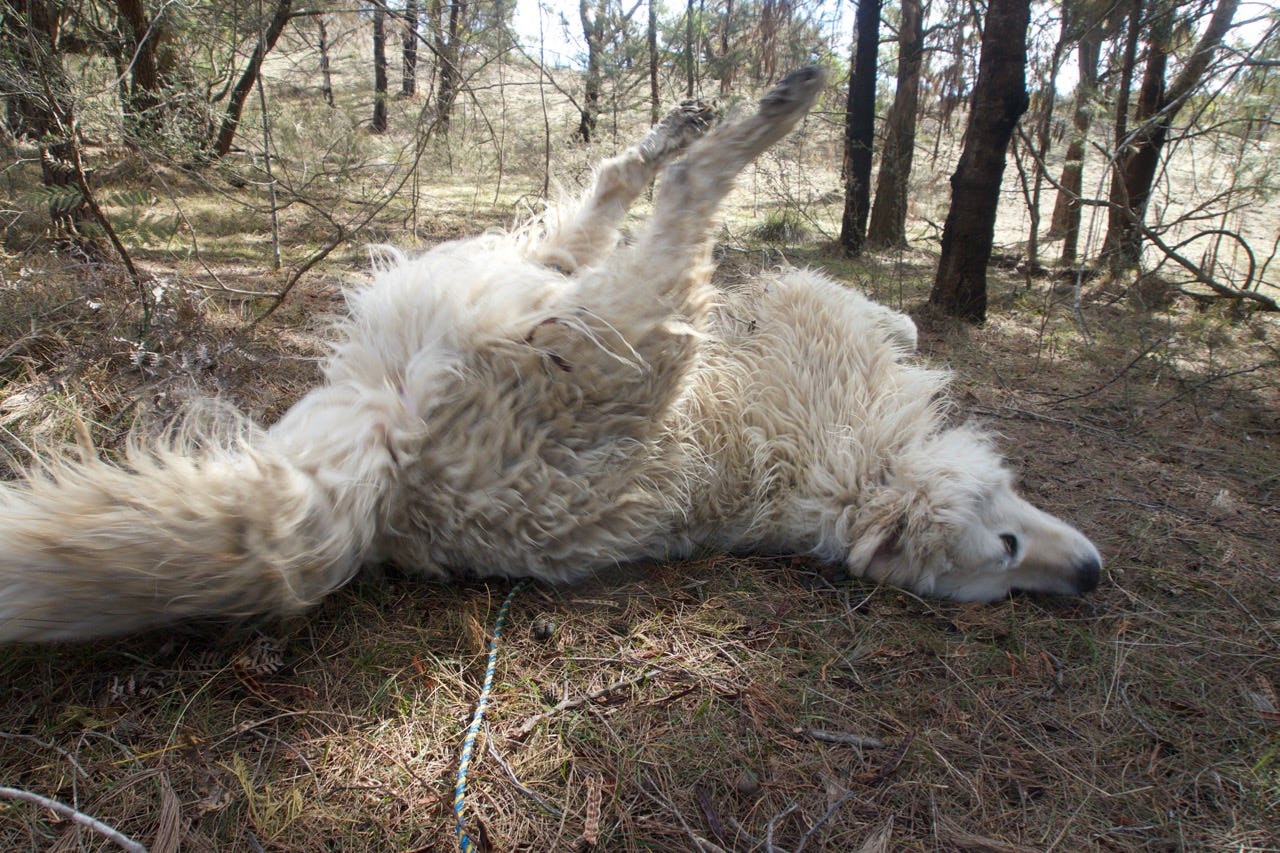
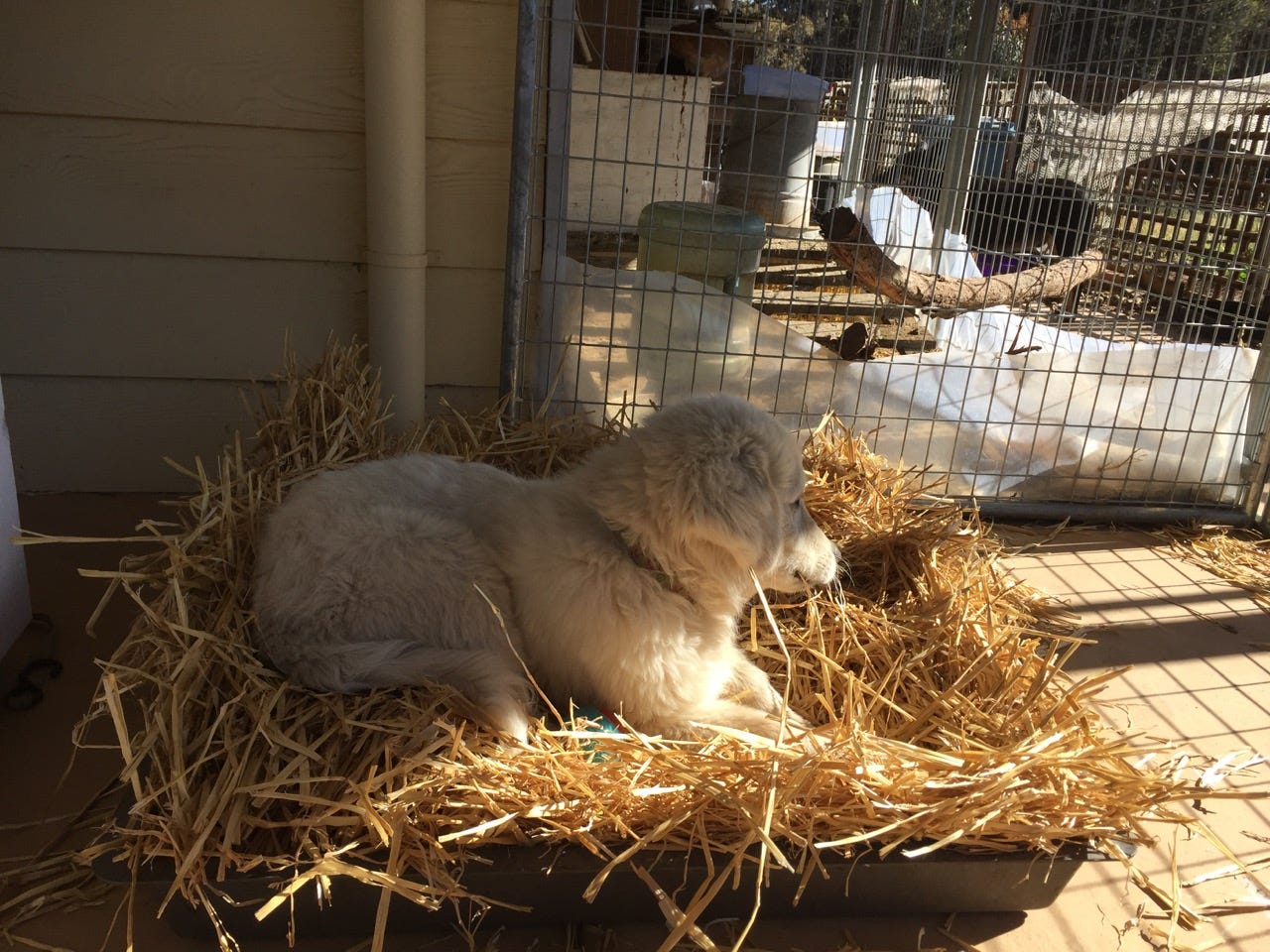
I had to snort laughing at the maremma reaction to chick starter!